Ifrance, Morocco—We arrived at Al Akhawayn University early Saturday morning. The workshop was already underway, so we snuck in the back of the classroom and found seats along the wall where we could observe and not interrupt. With only three words of Arabic in my vocabulary, my colleague from the local office provided brief, whispered translations.
In front of us, hands were raised and an energetic presenter paced across the room. It was a group of 19 e-learning experts mixed with representatives from Morocco’s Ministry of Education.
The three-day workshop was dedicated to engineering ways to adapt the Ministry’s training program for teachers to their online portal.
It was not the first time Ministry’s teacher training had gone digital. Four years ago, Ministry staff identified online learning as an emerging field they needed to tap into – to keep up with 21st century technology, but also to reach teacher trainers in rural areas of Morocco. So they transferred eight of 12 pre-service modules (for newly hired teachers) to e-learning training, and then tested it with 600 trainers.
Based on the success of the first round, the same group was tasked with taking two more modules, Support for School Success and the Enhanced Reading Program, to an online audience – this was their task as I observed from the back of the room.
The workshop is part of Creative’s five-year Improving Training for Quality Advancement in National Education project that supports Morocco’s Education Ministry reform goals of improving teachers’ professional skills to stem the tide of middle school dropouts. It is funded by the U.S. Agency for International Development.
I learned the animated presenter at the head of the room, the one scribbling diagrams and notes on the whiteboard, was Dr. Abdelkader Ezzaki, Deputy Chief of Party for the Improving Training for Quality Advancement in National Education program. I’d seen his name on emails in my inbox, but never met him in person. He was animated, passionate and spewing Arabic at a rapid pace.
He was joined by Dr. Miloud Ahbeddou, the king of all things e-learning for Creative’s program. Dr. Ahbeddou worked for 26 years as a teacher trainer at a university in Rabat, and has become an expert in training, teaching and online applications.
There were three other men at the front: Aziz El Hajir and Abdellatif Fergoug, employed by the Ministry’s Center for Pedagogical Innovation and Experimentation, and Hassane Darhmaoui, an expert in e-learning from the Al Akhawayn University, which has contributed greatly to the development of the program’s e-learning model.
The five men fielded questions and comments, hashing out the strategy for adjusting these courses for an online platform.
During the pause-café, a regular mid-morning coffee break, I was introduced to Mohamed Hosni, the Distance Learning Division Chief within the Ministry’s Center for Pedagogical Innovation and Experimentation.
He applauded USAID for contributing to the development of technology for education through infrastructure improvements and new training materials. Improving Training for Quality Advancement in National Education, he told me, is now allowing the Ministry to use the infrastructure to strengthen their training systems.
In his words, Creative’s program has “brought the soul to the body.”
Hosni also saw the program providing other advantages: it has allowed him to interact and collaborate with Ministerial groups as he never had before. In fact, the man to his left, Mofaddal Douhid of the Central Unit for the Training of Trainers, was a perfect example.
Before Creative’s program, these two men had never worked together, yet as Ministry employees, their work and ultimate goals are actually quite aligned. The Improving Training for Quality Advancement in National Education program brought them together during the development of the first set of e-learning courses, and Hosni could not be happier.
“Before, there was no collaboration,” he says. “Now [regional teacher trainers] are requesting training in new technologies from us. And Central Unit for the Training of Trainers is aware of the importance of distance education.”
I realized, as I watched the four presenters from my seat in the back of the classroom that they – just like Hosni and Douhid – have the same ultimate goal: improved teacher training, and improved education quality throughout Morocco. Through Improving Training for Quality Advancement in National Education, they have come together to work toward that goal.
That day, I learned that Creative’s partnership with the Ministry was not just for show. Two representatives from the program and two from the Ministry presenting at the workshop was not an accident. It was, in fact, very deliberate. It was how the Improving Training for Quality Advancement in National Education program had been working for more than four years. And their success was the product of a genuine partnership.
In its four plus years, Creative’s program has teamed with the Ministry to develop e-learning courses, improve in-service and pre-service training programs and provide Ministry staff with skills in training and project implementation. These activities have been led by the Ministry, with guidance from the Improving Training for Quality Advancement in National Education program.
When the program closes in a few months, it will technically end the partnership with the Ministry, but it won’t end the Ministry’s progress. The Ministry will continue its work in improving teacher training; and now, thanks to Creative’s program, it has even more tools to do that.
